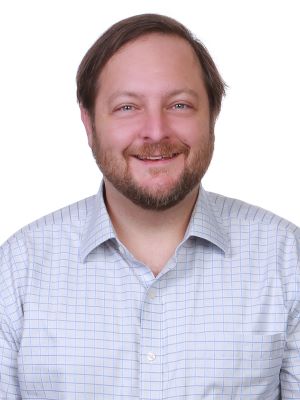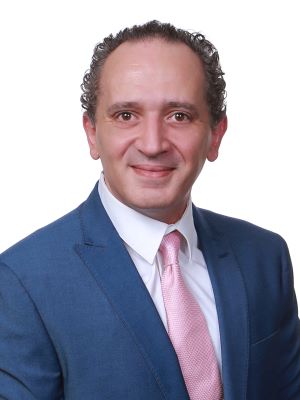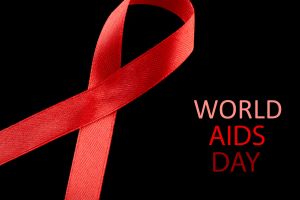

It may be easier to ask a doctor whose specialty is infectious disease what health conditions and case types they do not treat rather than what they do. Unlike primary care doctors and other medical specialists, infectious disease doctors work across the lines of specialties and systems of the body to lend their expertise in diagnosing and treating challenging conditions caused by viruses, bacteria, fungi and parasites. They play a pivotal role in complicated cases involving pneumonia, urinary tract infections, hepatitis, tuberculosis, diabetic wound and surgical site infections, HIV, and a host of other diseases and infections that can strike anywhere in the body.
Noah McKittrick and Nassim Mokraoui, are both MDs specializing in infectious disease at Carle BroMenn Medical Center. Their days are busy and ever-varied as they see patients both in the hospital and at their offices. Though they were just children in the 80s – too young to remember much about the earliest days of the AIDS epidemic – HIV-related care is something they both provide today.
With the observance of World AIDS Day, they remind medical providers in the community and those with HIV or at risk of contracting HIV, to seek them out. They are here to help and are excited by the options available to manage HIV infections and prevent new HIV cases.
“The baton has been passed to us by the doctors and healthcare workers that came before us,” Drs. McKittrick and Mokraoui share. “We will do everything we can to help protect the health of those within these still highly marginalized populations.”
There is still no cure for HIV infection or AIDS, however, significant gains have been made in HIV prevention, diagnosis, treatment and care.
“It’s important to me that newly diagnosed patients know that I understand their concern and I want to help them live a long, normal life with this manageable chronic disease,” Dr. Mokraoui explains. “The new meds that are available work really well and are well tolerated. Patients that take them as prescribed can keep an undetectable viral load and live their lives.”
Barriers to care that can hinder those affected by HIV/AIDS from seeking care and support remain, as does HIV-related stigma and discrimination. “Though HIV is one of many infectious diseases that fall within our area of expertise, we face more difficulty reaching the population impacted than we do with other disease types,” Dr. McKittrick explains. “We care, and want to assist those from communities at highest risk of contracting HIV to get the treatment they need to either prevent getting HIV or make living with HIV/AIDS a manageable chronic condition.”
A bonus for individuals seen by either Dr. McKittrick or Dr. Mokraoui is that as infectious disease doctors, they can diagnose, treat and manage the full spectrum of their patients’ HIV-related care.
HIV, like COVID-19, reminds us that new viruses can emerge and can spread quickly. Carle board-certified infectious disease physicians specialize in diagnosing and managing illnesses and caused by bacteria, viruses, fungi and parasites. For more information about infectious disease services at Carle, visit our website.
Categories: Staying Healthy
Tags: Bloomington-Normal, Carle BroMenn Medical Center, HIV/AIDS, Infectious Disease,
